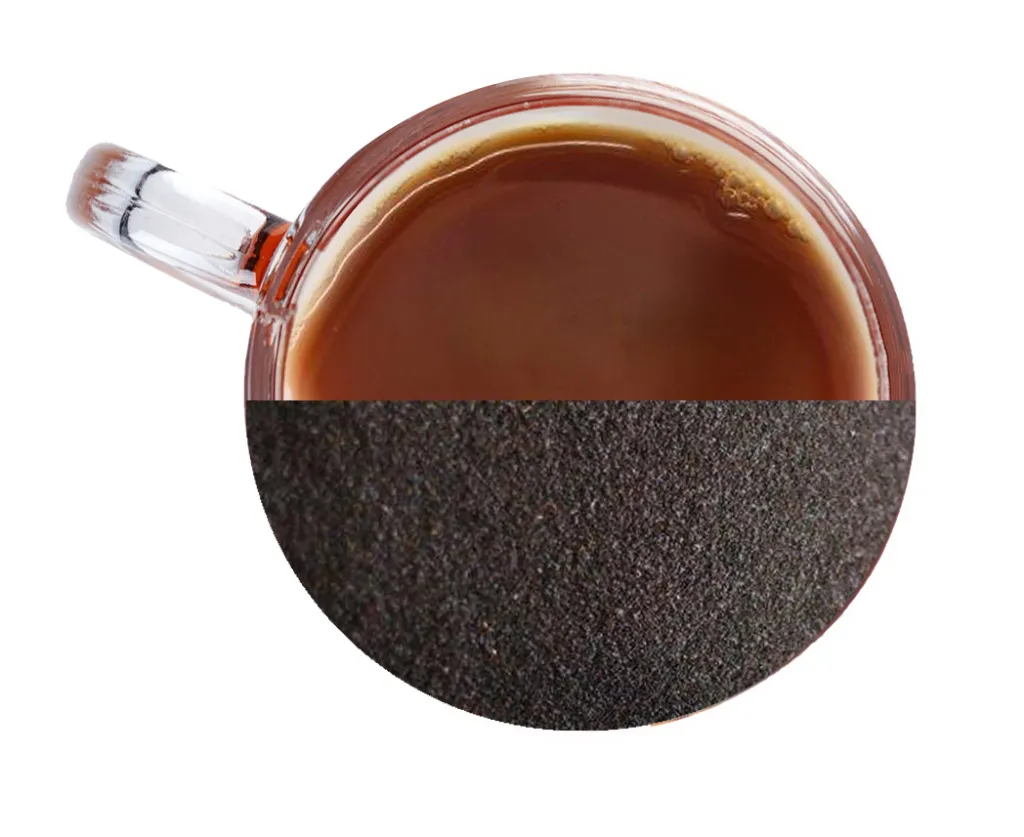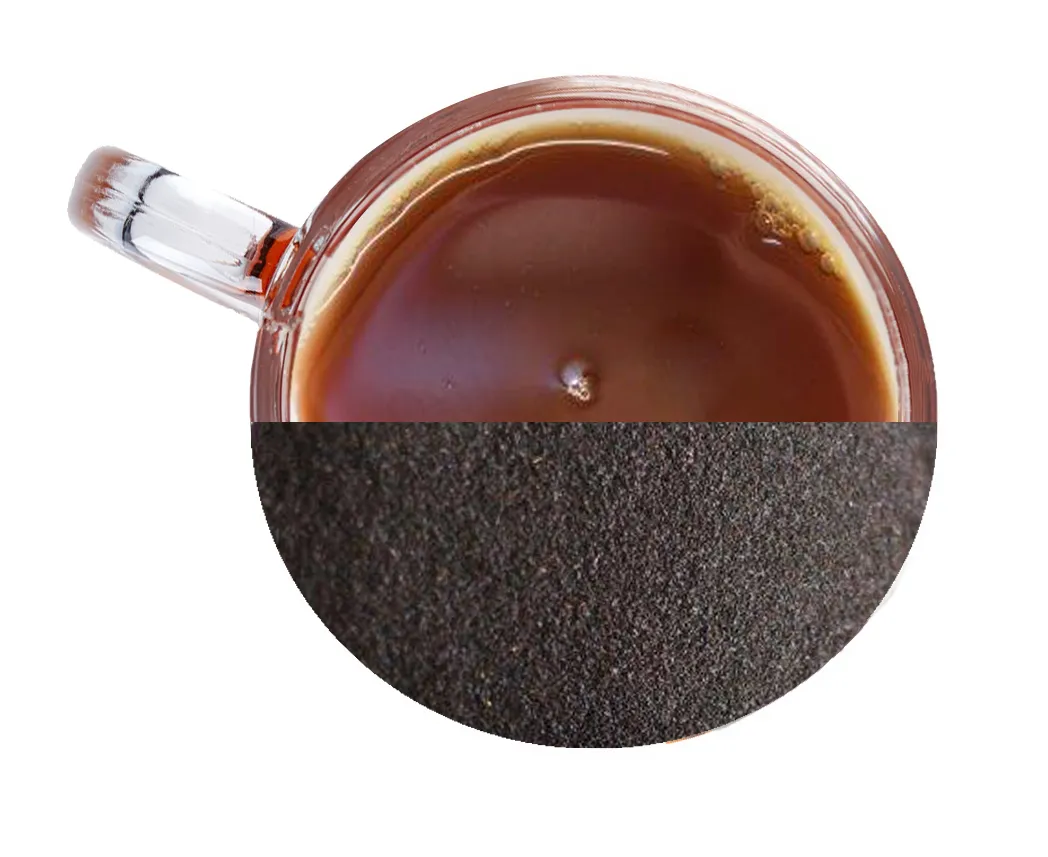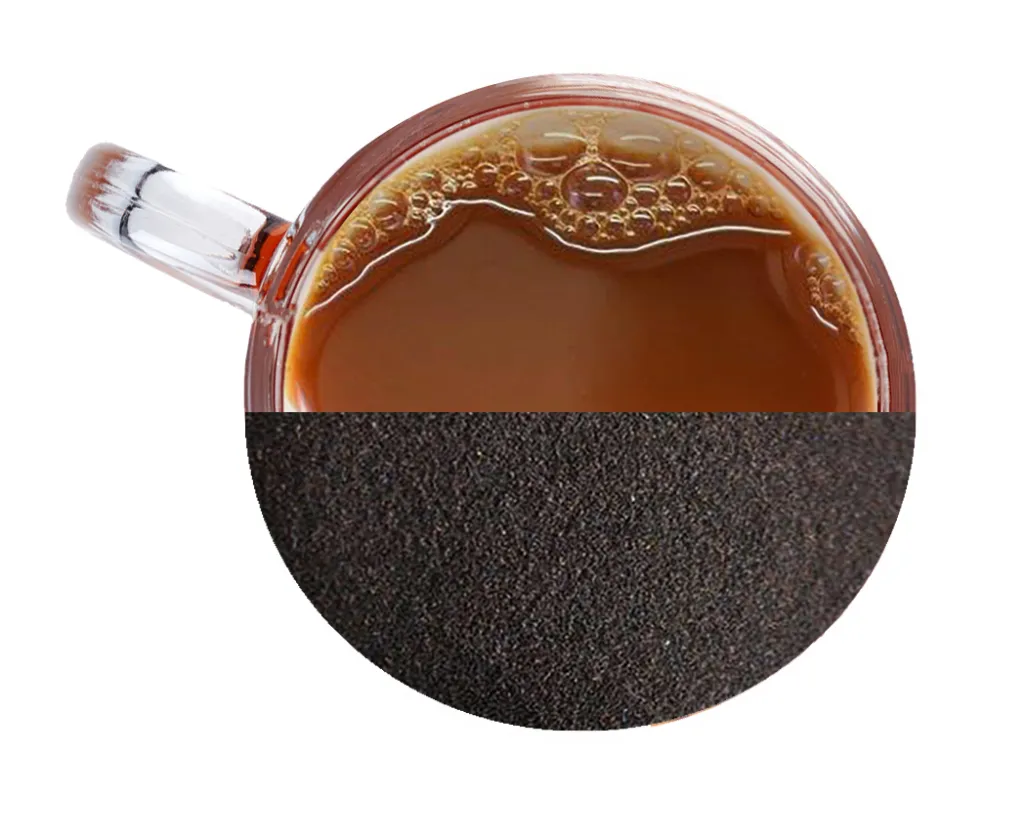Kenyan Tea Exports at Gulfood 2025: Market Insights & Key Takeaways
- Christine Simon
- Mar 20
- 4 min read
A Global Stage for Kenyan Tea
Gulfood 2025, held from February 17-21 in Dubai reaffirmed its status as the premier global platform for the food and beverage industry. Kenyan tea exporters, government officials, and industry stakeholders took centre stage, engaging with importers and distributors from across the world.
For Kenya, this event is more than just a trade show—it’s an opportunity to strengthen trade relationships, showcase premium tea offerings, and analyse evolving market trends. This year’s discussions provided valuable insights into shifting consumer preferences, pricing trends, and the future of the tea industry in Kenya.
Kenya’s Presence at Gulfood 2025
Kenya’s representation was led by the Tea Board of Kenya (TBK), alongside some of the country’s leading tea exporters. Their stand at Za'abeel Hall 1 featured a broad selection of Kenyan CTC grades, orthodox teas, and specialty Kenyan teas, reinforcing the country's reputation as a top producer of high-quality teas.
Importers seeking to buy Kenyan tea had direct access to reputable Kenyan tea suppliers, enabling them to explore Kenyan tea benefits, including bold flavours, high antioxidant content, and sustainable farming practices. Many discussions centred on optimising sourcing strategies and understanding tea grades in Kenya to meet diverse market demands.
Kenya’s commitment to enhancing global competitiveness was reinforced by strong government support at the event. Agriculture Cabinet Secretary Mutahi Kagwe attended Gulfood, underscoring Kenya’s focus on quality enhancement, market transparency, and expanding international reach.

Government Efforts to Enhance Kenyan Tea Quality and Trade
His participation was followed by a crucial March 2025 meeting with the East African Tea Trade Association (EATTA), where key discussions addressed regulatory improvements, pricing stability at the Mombasa Tea Auction, and strategies to boost Kenyan tea’s global market access.
During this meeting, CS Mutahi Kagwe also released the 2024 Kenya Tea Industry Performance Report, which highlighted growth in exports to both traditional and emerging markets.
Countries such as Kazakhstan, Somalia, Switzerland, Oman, Nigeria, Ukraine, Sri Lanka, the USA, Germany, South Africa, and Japan have seen increased imports of Kenyan tea. Additionally, value-added Kenyan tea has gained traction in Niger, Guinea, Poland, Senegal, Mauritania, Syria, China, and Mauritius, illustrating the growing demand and new opportunities for tea importers.

Key Market Trends & Takeaways for Tea Importers at Gulfood 2025
Understanding Kenyan Tea Grades & Pricing
One of the most discussed topics at Gulfood 2025 was Kenyan tea pricing and market fluctuations. Many importers searched for answers to "How much does 1kg of tea cost in Kenya?", a price that varies based on grade, seasonality, and auction trends.
For buyers researching Kenyan tea grades and Kenyan tea prices, Gulfood 2025 provided valuable insights into market trends. Kenyan CTC tea remains the top choice for large-scale importers due to its consistent quality and full-bodied flavor. The key grades include BP1 (Broken Pekoe 1), a premium grade ideal for strong brews; PF1 (Pekoe Fannings 1), the most popular choice for tea bags; PD (Pekoe Dust), with fine granules that allow for fast infusion; and D1 (Dust 1), which produces the strongest liquor and is commonly used in blends.
Current Mombasa Tea Auction reports indicate that premium CTC tea is priced between $2.50 and $3.50 per kilogram, with specialty teas fetching higher premiums. The EATTA’s recent push for price transparency was a focal point, as importers seek more predictable and competitive pricing structures.
Evolving Consumer Preferences
The demand for higher-value teas continues to grow, as consumers seek premium options beyond traditional bulk CTC exports. Kenyan Orthodox tea, specialty loose-leaf teas, and unique blends are becoming increasingly popular, especially in markets that prioritise quality and origin authenticity.
For tea importers, this shift presents an opportunity to explore a broader range of Kenyan tea offerings, catering to diverse market preferences and premium consumer segments.
Innovation in Kenyan Tea Exports
Kenyan tea exporters are adapting to market trends by introducing innovative tea solutions that cater to evolving consumer demands:
Flavoured and Herbal-Infused Teas – Appealing to wellness-conscious consumers with natural infusions.
Organic-Certified Kenyan Purple Tea – Meeting the rising demand for sustainably and ethically sourced products.
Functional Tea Blends – Incorporating health-boosting ingredients like hibiscus and ginger.
Kenyan Tea as a Raw Ingredient – Supplying the food & beverage, pharmaceutical, alcoholic, and cosmetic industries in North America and Asia.
With global trends shifting toward health-focused and premium tea products, Kenya is well-positioned to meet the demand for high-value specialty teas that align with these preferences.
Cost-Effective Sourcing Strategies
In an increasingly competitive global tea market, importers are refining their sourcing strategies to balance cost and quality. Discussions at Gulfood highlighted a trend towards greater flexibility in sourcing, as buyers explore alternative tea grades that align with pricing objectives.
Understanding tea grades in Kenya, from BP1 and PF1 to PD and D1, allows importers to optimise purchases while maintaining the desired quality standards. Kenya’s reputation for consistent supply and competitive pricing makes it an attractive choice for buyers seeking both bulk and specialty teas.
Ready to Buy Kenyan Tea?
Looking to import Kenyan tea? Kenyan Tea Exports at Gulfood 2025 reinforced Kenya’s position as a top tea-exporting country, offering unmatched quality, consistency, and market opportunities for global buyers.
✅ Consistent Supply & Ethical Sourcing – Kenya’s rigorous quality control and adherence to ethical trade practices ensure a reliable supply of high-quality Kenyan tea year-round.
✅ Diverse Tea Varieties – From CTC black tea (BP1, PF1, PD, D1) to premium orthodox teas, Kenya caters to a wide range of market demands.
✅ Government & Industry Support – New policies enhance price stability, transparency, and global competitiveness, making Kenyan tea a smart investment.
Whether you're an established importer or exploring how to import tea from Kenya, now is the perfect time to source from Kenya’s trusted tea producers.
As experienced Kenyan tea exporters, we simplify the tea import process, helping you select the best tea grades to meet your market needs. Let’s discuss how Kenyan tea can elevate your product portfolio.





Comments